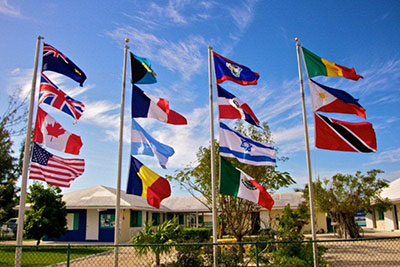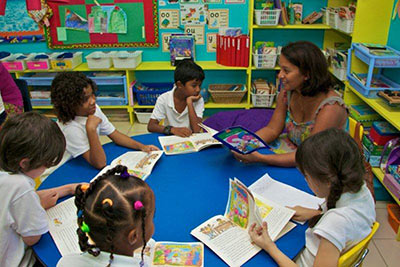
The International School of the Turks and Caicos Islands aims to provide a broad and well balanced academic and social programme, based on the British National Curriculum for children from 1 to 12 years of age.
We aim to enhance our primary school curriculum with experiences drawn from our wonderful natural environment within the Turks and Caicos Islands and from the experiences of our international community.
We strive to provide a differentiated curriculum that meets the varied needs of all children, within a caring, happy and stimulating environment. We aim to adapt our curriculum to meet regional needs.
The International School of the Turks and Caicos Islands encourages enquiry and investigative learning. We promote an active awareness of our multicultural environment and encourage the holistic development of our future World citizens.
International School Curriculum
Your child’s time at school is divided into phases that are known as Nursery, Preschool, Foundation Stage and Key Stages 1, 2 and 3:
- Nursery and Preschool
- The Foundation Stage – Junior Kindergarten (Nursery) & Senior Kindergarten (Reception)
- Key Stage 1 (KS1) – Grades 1 and 2 (Years 1 and 2)
- Key Stage 2 (KS2) – Grades 3, 4, 5 and 6 (Years 3 – 6)
- Key Stage 3 (KS3) - Grades 7, 8 and 9 (Years 7 - 9)
The curriculum is divided into core and foundation subjects as follows:
- Core Subjects: Mathematics, English and Science
- Foundation Subjects: Geography, History, ICT, Art and Design, Design Technology, Physical Education, Music, Spanish, French, Drama and Citizenship


